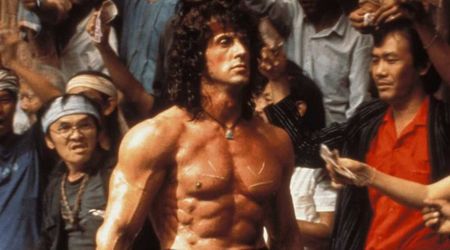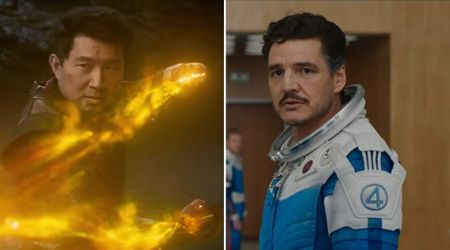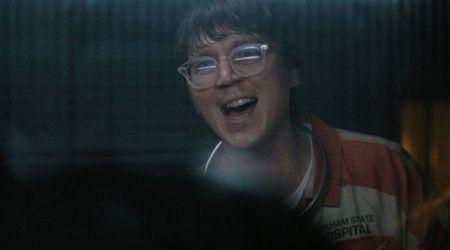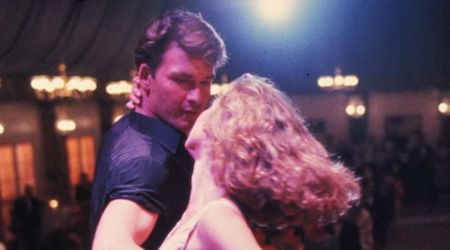Hollywood's whitewashing of live-action anime films is a big problem, especially since they're picking the wrong ones

Hollywood is the biggest film industry in the world and with this premium position it has more than enough controversies coming its way.
Every time a filmmaker pitches a script to producers, the red tape surrounding the production is intense and for good reasons.
Many writers and directors fall prey to one controversy in particular which is the "whitewashing" of a cast for a story that has nothing to do with people who fall under the category of being "white" or, the more politically correct term, Caucasian.
The release of many films from the industry that, intentionally or not, portrays people of Asian or African descent as Caucasian in the films/TV shows even though the role is clearly not meant for a white person.
This problem is particularly evident in Japanese anime series that get live-action adaptations.
The whole controversy behind whitewashing, in the case of anime, doesn't have to actually be there because there are certain series that show Caucasian characters in proper European cities or countries but the only thing is that the audio will be Japanese because it's catering to that audience.
The stories in these shows are probably better told than most critically-acclaimed films in Hollywood so it's not like there's a lack of original content.
Why, then, does the industry have this need to make everyone in their adaptations look relatable and white if it's not needed? I'm not talking about the language because there are many talented multilingual Asian actors who can play the roles of these characters perfectly without taking away from the story.
To prove that Hollywood, or in the case of this article, Netflix, has whitewashed the wrong live-action anime films, we will look at two recent ones that have made it to the streaming network: Death Note and Fullmetal Alchemist.
Both of these series in their original Japanese anime forms are truly exceptional with their stories dealing with some pretty heavy stuff like loss, revenge, death, and so on. Anime, even though it is animation, is not always meant for children and most of the animes we see today have some dark themes but portrayed in a way that any age group can watch without being too traumatised by its content.
When it comes to Death Note, the story revolves around a young man, Light Yagami, who finds a black notebook one day that the shinigami (death god) Ryuk dropped on Earth for fun. The demon visits Light and tells him that the person whose name he writes in the notebook will die. The cause of death can be decided by him and if he doesn't write the specifics down, they will die of a heart attack. To see if it really works, Light targets high-profile criminals in his home country of Japan and sees that it actually works. He then goes on a quest to rid the world of evil but is stopped by a mysterious investigator only known as L. The show builds up to the most edge-of-the-seat climax one can come to expect of certain animes and it is a mindblowing experience to watch.
When Netflix announced that they were going to make a live-action adaptation of the show, many fans were skeptical. The biggest concern was whether they were going to whitewash the characters and sure enough, they did. Netflix's adaptation ended up being a typical American film without much connection to the source material. The film's director even said at one point that the film would get a sequel if enough people watched the first one but thankfully that doesn't seem like that is going to happen because of how they managed to mangle such a beautiful story.
Netflix's adaptation of Death Note is the classic case of whitewashing just because that's a thing people in Hollywood like to do even though it doesn't make any sense.
But the thing that doesn't make even more sense is the fact that the one anime adaptation they could have actually whitewashed, Fullmetal Alchemist, was not.
Don't get me wrong, the cast of the live-action film on Netflix, even though they were all Japanese, did a great job and the film was definitely better than Death Note (God that film was awful and made me super upset) but the question is still why did they not use European actors for this film?
Fullmetal Alchemist takes place in an alternate history of the world where the practice of alchemy was actually a thing and it also takes place in a country which doesn't actually exist in real life but if you look at it closely, all the characters in it are Caucasian.
The protagonists of the series are brothers Edward and Alphonse Elric. Their best friend is a girl called Winry Rockbell who is a gifted automail mechanic (imagine a person who makes prosthetics). The show starts off with the boys losing their mother and performing forbidden alchemy which causes Ed to lose an arm and leg and Al to lose his entire body. The rest of the show is about their search for the fabled Philosopher's Stone which will allow Ed to put his body back together and get Al's body back.
The one thing that Netflix did right with this one was sticking to the source material and basically condensing the entire first season into a film which was equal parts enjoyable and nostalgic. The major flaw in the film, though, was the use of native Japanese actors. This is the kind of film hat could have easily used white actors and there wouldn't have been issues.
Remember when Disney said they were going to cast a white actress to play Mulan in the live-action adaptation and people freaked out? Well, that wouldn't have happened here because the characters, even though they speak Japanese in the show, are all predominantly German. I mean, Ed and Al's father is called Van Hohenheim, guys. Like...come on.
So we can see that the industry is learning how not to make these mistakes the more they adapt these brilliant anime films, but there is still a long way to go before we get to see a film that has been adapted which does not have any controversy attached to it.
Now all we need to do is wait for them to pick a series like Attack on Titan and use African-American actors in all the roles just because the directors feel like they need creative licenses to make random changes to the source material and end up ruining something that was brilliant as it was.










